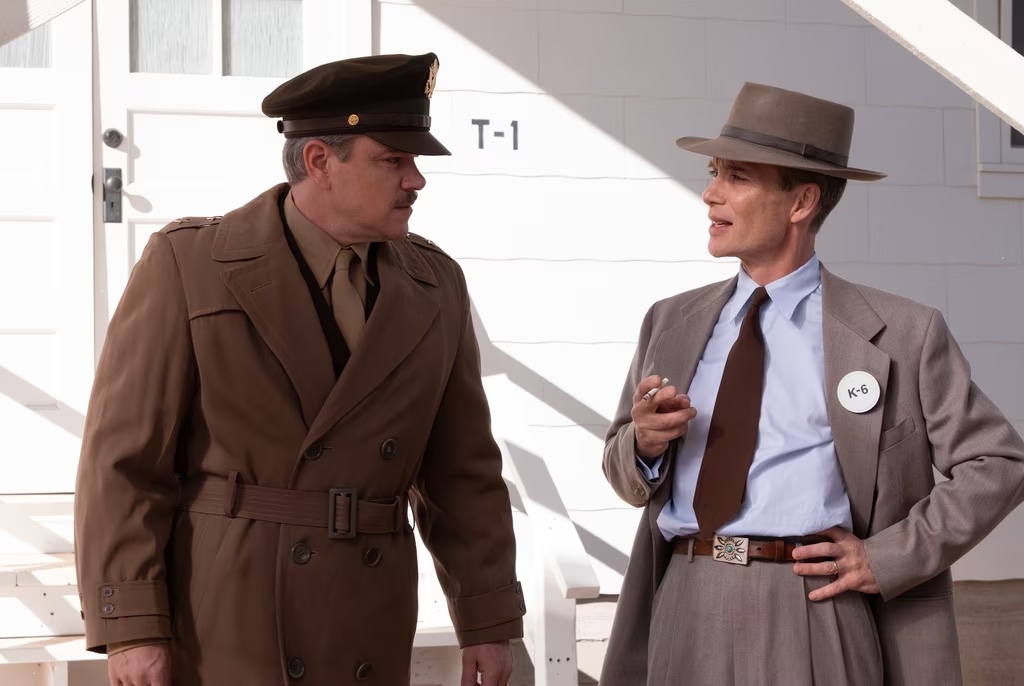If Cillian Murphy’s J. Robert Oppenheimer was the anti-hero of director Christopher Nolan’s “Oppenheimer,” Lt. Gen. Leslie Groves, portrayed by Matt Damon, is his equally controversial counterpart.
Tasked with staffing what would eventually become known as the Manhattan Project, Damon’s character is the dutiful Army servant given the dubious honor of presiding over a team of brilliant scientists who in no way conform to the military’s notions of hierarchy.
“The frustration [for] Groves — what he lived with as a military person — he suddenly finds himself in charge of a bunch of civilians who don’t really recognize the chain of command,” Damon told Military Times.
In a serious film about one of the most devastating weapons ever created, Damon manages to bring a bit of levity via the near-comical level of rigidity with which he portrays Groves.
“I would have played anything that Chris asked me to,” Damon said. “But Groves was really fun because I’d never quite had a role like that. Nobody liked him, which was really fun. And he didn’t care at all, he was just completely focused on what he was doing.”
Damon played off of Murphy’s character particularly well — creating a relationship between Groves and Oppenheimer that, despite tension, facilitates both individuals’ lofty aspirations to get ahead. Despite the arm’s length distance between the duo, the pairing ultimately results in a friendship based on mutual respect.
“They both appreciated each other — they helped each other fulfill each other’s ambitions,” Damon noted. “Each couldn’t have done it without the other. There was a lot of genuine affection there.”
Despite having vastly different backgrounds and personalities, both characters accomplish the unbelievable amid the constant push and pull between the military, which Groves represents, and the enterprising civilian so perfectly illustrated by Oppenheimer.
“[It’s] that tension between the military and the science community, just because the military is just completely obsessed with compartmentalization and secrecy,” Damon noted. “You’re talking about an existential threat to humankind, but the scientists are all about kind of keeping things open and learning from one another. They were philosophically totally opposed, and that led to this kind of natural tension between Groves and everybody else.”
Ultimately, in the film’s following of the development of the atomic bomb, Nolan, Damon noted, developed something more akin to a horror film or psychological thriller.
“I was terrified when I when I got to the last line of the script, and then seeing it in the film,” Damon said. “I’ve been kind of filled with dread.”
Artful anxiety is something that Damon attributes often to the genius of Nolan, who both wrote and directed the film.
“His movies do this really incredible thing where he’s always grappling with these big concepts, but they’re also very intimate,” Damon said. “He always wants to put interesting questions in front of his audience and let them ponder them, but at the same time, they’re not lectures or thought exercises. They’re very emotional movies and they’re very intimate and and so he’s always got these compelling characters.”
Originally published by Military Times, our sister publication.





